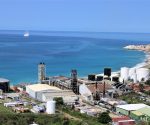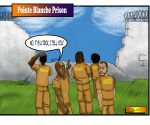Hogwash

By Hilbert Haar
The November 19, 2021, court ruling against Hushang Ansary, his daughter Nina and several others that orders them to repay insurance company ENNIA in excess of a billion guilders starts having an effect. Ansary has offered to abide by the ruling, but in the meantime his appeal against the ruling is taking place in Curacao.
Nina Ansary has filed a lawsuit at the US District Court for the District of Columbia in an effort to protect her 15.9 percent share in her father’s company Parman. And now Abdallah Andraous, a former ENNIA-director, has joined the fight with what feels like a frivolous attempt to get away from repaying ENNIA 237.2 million guilders ($132.5 million) in damages.
His attorney Rutsel Martha is seeking relief for his client through the bilateral investment treaty between Lebanon and The Netherlands. Why Lebanon? Andraous was born in Beirut but he has in the meantime obtained Dutch citizenship. He also did not invest in Lebanon; instead, he is holding 1 percent of the shares in Ansary’s company Parman.
Why this treaty between the Netherlands and Lebanon is relevant, remains unclear. Even better: Martha claims that the Kingdom is ultimately responsible for what the Central Bank did to Andraous and his investments. The attorney refers for this purpose to article 11 of the treaty. There is one problem: that article does not say anything about the kingdom’s responsibility for whatever is happening in Curacao. It only states that the treaty is applicable in the European part of the Kingdom, in the Netherlands Antilles and in Aruba.
Smoke and mirrors, that’s what it all adds up to if you ask me. Why did Martha go for the treaty with Lebanon and not, for instance, for the Dutch-American Friendship Treaty? Andraous is, after all a Dutch citizen. The Friendship Treaty (officially titled: Treaty of Friendship, Commerce and Navigation between the Kingdom of the Netherlands and the United States of America) contains at least a paragraph aimed at the protection of business assets.
Article VI.4 of this treaty states: “Assets of citizens and companies of one party within the territory of the other party will not be withdrawn, unless for a purpose of general interest, nor will they be withdrawn without prompt payment of righteous compensation.”
All this goes to show that Ansary’s recent offer to pay all damages based on the 2021 court order is a lot of hogwash. The defendants in this case are with their backs against the proverbial wall and they have nowhere to turn to.
They are using every possibility the law allows them to fight the 2021 verdict. That is their right. But there comes a time when you have to take responsibility for your actions. Apparently, that is not the strong point of Ansary and the people around him.
###
Related article: Former director Andraous joins the fight against ENNIA

























